Nov 20
17
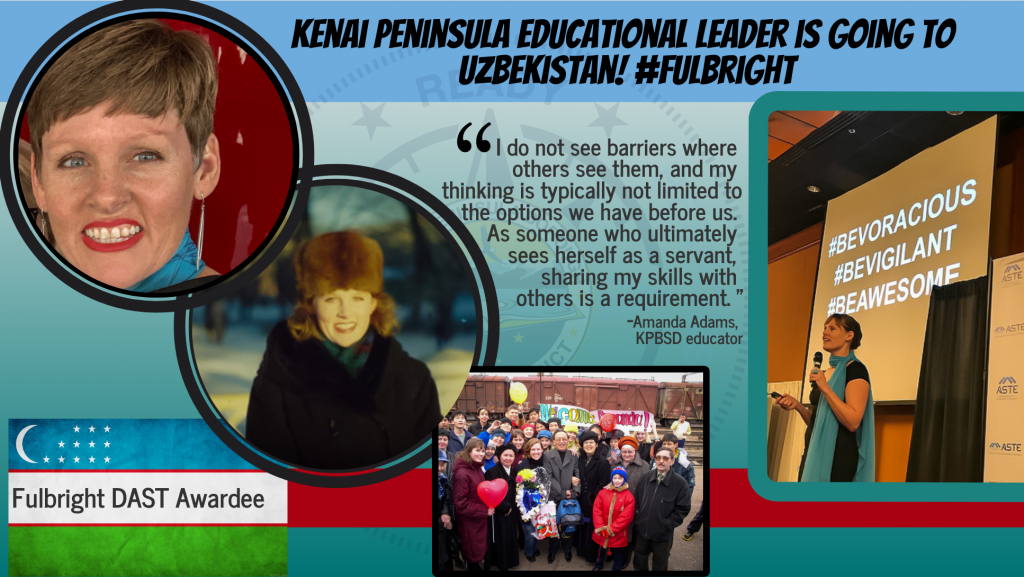
Amanda Adams of Kenai Peninsula Borough School District in Soldotna, Alaska, has been selected for the Fulbright Distinguished Awards in Teaching Short Term (Fulbright DAST) Program to Uzbekistan, a program sponsored by the U.S. Department of State and the Fulbright Foreign Scholarship Board. Adams is one of 12 U.S. citizens who will travel to six countries around the world in 2021 on the Fulbright DAST Program.
“Our greatest challenge is ourselves,” says Amanda Adams, KPBSD Lead Innovation Designer. “We create boundaries and limits for ourselves continually and detrimentally. Much of my time is spent convincing people of what they are capable of. I do not see barriers where others see them, and my thinking is typically not limited to the options we have before us. As someone who ultimately sees herself as a servant, sharing my skills with others is a requirement. The opportunity to help teachers in Uzbekistan see possibilities and hone skills is something I can and should do. When reading the project description, I had all the pieces that could support this work. A Peace Corps volunteer at heart forever, I did not hesitate to take a risk to see if I could be competitive for the honor. If you do not take a risk, you will never know.
I continue to be passionate about the change that we are making: empowering learners must serve as the crux of our mission. What interests me the most at this current juncture is the empowering of educators to drive their own learning. And, that everyone in the organization from the superintendent to the learner is growing and deepening their work, with systemic support for learner-driven education.”
“This Fulbright fellowship is a well-deserved distinction for a truly inspiring instructional teacher leader. It is refreshing when the very best in a profession get the recognition that they deserve and can benefit others through an incredible experience such as this. Amanda Adams will share her talents and gifts with others through this fellowship and will continue to grow as a professional educator. We are so proud of Amanda and supportive of her continued professional growth.”
Superintendent John O’Brien
Recipients of Fulbright grants are selected on the basis of academic and professional achievement, as well as record of service and demonstrated leadership potential. Learn more about the Fulbright Program, a the flagship international educational exchange program sponsored by the U.S government, and created to increase mutual understanding and build lasting connections between the people of the United States and the people of other countries. The Fulbright Distinguished Awards in Teaching Short-Term Program sends expert U.S. K–12 educators to participating countries to support projects in schools, teacher training colleges, government ministries, or educational nongovernmental organizations, as identified by U.S. Embassies and Fulbright Commissions.
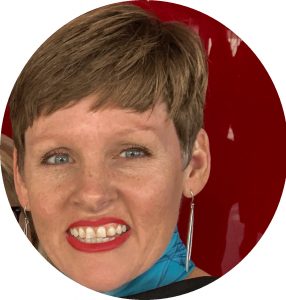
Thoughts from Amanda Adams, KPBSD Lead Innovation Designer
Q:
Fulbrighters address critical global challenges; what is a global challenge
that you want to solve, or contribute to with solutions?
“Education for
the global citizen is a real challenge for educators. Across the globe,
ministries and departments of education are limited in their funding and their
resources so much so that the result is limited training for educators or
training for educators that is not keeping up with innovation in both
technology and globalization. By participating in the broader global
conversation about innovation in education and educating global citizens, I
have the opportunity to make a difference on a larger scale while offering all
that I gain in this realm back to my home school district. Our children do not
see the world as a place with a limited sphere of influence, it is one world
for them. I don’t believe that we should draw artificial boundaries for them.”
Q: With no limits, what professional learning experience would
you like to pursue?
“My dream
professional learning experience would be to build cohorts of teachers that are
driven by community and customize their training to empower them and cultivate
leadership skills! Helping them to build a sustainable, responsive and growing
practice with innovative designing of learning that break down geographic and
cultural barriers. Combine such a vision with my love of travel, culture, and
global perspective and that takes me to seeking opportunities like the
Fulbright DAST Project in Uzbekistan where I will adapt my vision to fit within
the professional culture and readiness for innovation. I will layer my design
of my six-week project in training teachers in Uzbekistan with prioritizing
what the outcomes are that they are trying to achieve. Ultimately, I am a
passionate servant.”
Q: How do you see education evolving, and what change or
awareness most interests you?
“Actually, we are
on the cusp of fundamental shifts as we speak. Not for reasons that we would
have chosen but nevertheless, education has leaped forward from the innovation
precipice that we have been teetering on for so very long. Many years ago, Superintendent
John O’Brien interviewed me at a districtwide inservice regarding my vision for
education. I believe what I said then has happened. We are creating
student-driven and personalized education with deep integration of technology
to enhance the opportunities and resources available for learning while
strengthening the foundation of our profession—relationships and people.
I predicted in that interview that we would offer combinations of online, blended, and face-to-face learning customized through student agency.
-Amanda adams
I continue to be passionate about the change that we are making: empowering learners must serve as the crux of our mission. What interests me the most at this current juncture is the empowering of educators to drive their own learning. In addition, that everyone in the organization from the superintendent to the learner is growing and deepening their work, through systemic support for learner-driven education.”
Q: Is there a specific someone or something that influenced
your career path?
“I have had
several wonderful mentors over the years, but continually supportive
administrators that allowed me to drive my own learning and growth have been a
large part. I would say that in the last seven or so years of my work, Kim
Leslie, has played a vital role. She is my professional comrade, and I give her
credit for being the sounding board and partner in this most crucial part of my
career. I am intrinsically motivated and ambitious, but she continually
provides honest, creative, and solution-oriented perspective. I am greatly
inspired by leaders in our profession that share their work continually through
blogs and twitter. I read a LOT and am constantly staying up on the latest
research and perspectives the thought leaders share.”
Q: What does receiving the Fulbright DAST Program Award
evoke in you?
“I am ecstatic
about a new and meaningful challenge. Receiving this award has many layers of
meaning to me! I am constantly pushing myself to grow and challenge my
abilities. This is incredibly important to me as it takes the skills I have
been honing in andragogy and innovative professional development and crosses it
with my Russian language abilities, culture layers of education systems in
other places, adaptations to design for cultural awareness. I served in the
Peace Corps in Kazakhstan, a neighboring country of Uzbekistan. I am thrilled
to explore the differences in culture while reviving my understanding of former
soviet education systems analyzing them for where change and growth is
possible. Working with the Ministry of Education in Uzbekistan offers me the
opportunity to influence large scale change. And that is incredibly exciting!”
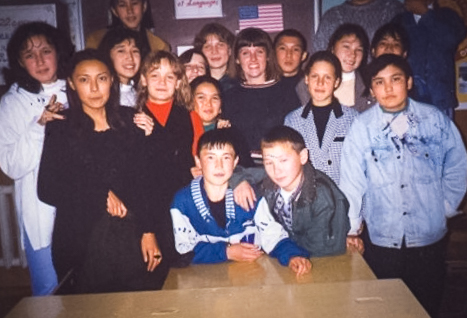
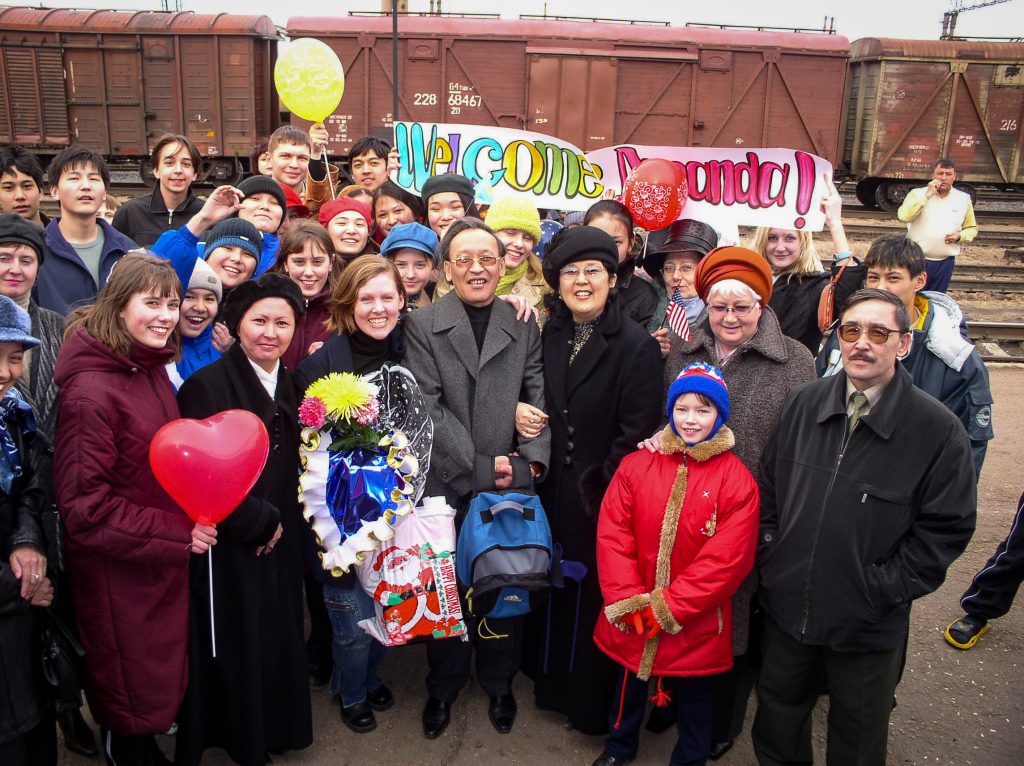
Q: What advice would you give to your younger self?
“My younger self
was passionate about her craft and the students I served, but I would tell a
younger me not to wait to get involved in larger scale change. I would tell her
to get out into the broader movement earlier. You can serve 150 students in
your classes in a high school or you can serve 8,000 students at the district
level, but if you refuse to limit yourself and collaborate with teachers across
the globe, you contribute to the world. I would tell her that she can learn
from so very many people and they want to learn from her too. We are not
limited to the educators who are next to us in the hallway. Our foundational
relationships lie with them, but expanding to include the wider cause
monumentally expands our growth. Do not settle. Ever.”
Q: Do you have a favorite aspect to your work each day?
“The very best
part of my work and the part that I truly thrive on is collaboration toward
solving problems of practice.
There is tremendous creativity and design that we are capable of when all parties focus on growth.
-Amanda adams
Every day I work with teachers and my district level partners to make learning better for kids. I love building relationships founded on professional trust and offering the very best part of ourselves to each other and our students.”
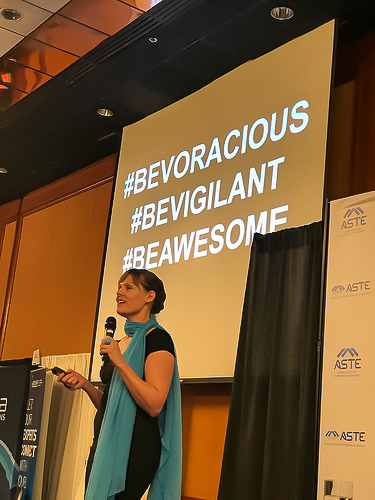
Q: Is there a challenge or inspirational part of your work
combined with this opportunity that deeply matters to you?
“Our greatest
challenge is ourselves. We create boundaries and limits for ourselves
continually and detrimentally. Much of my time is spent convincing people of
what they are capable of.
I do not see barriers where others see them, and my thinking is typically not limited to the options we have before us.
As someone who ultimately sees herself as a servant, sharing my skills with others is a requirement. The opportunity to help teachers in Uzbekistan see possibilities and hone skills is something I can and should do. When reading the project description, I had all the pieces that could support this work. A Peace Corps volunteer at heart forever, I suppose, I did not hesitate to take a risk to see if I could be competitive for the honor. If you do not take a risk, you will never know.”
Q: Do you have a favorite motivating phrase or movie?
“No more silo.
Educators that I have worked with on many, many projects know this phrase from
me. Historically as a profession, we tend to be very lonely and working
independently in our silos. We may not even see other teachers in the building
for weeks. We used to go into our rooms and close the doors and do what we do.
It was lonely and extremely exhaustive contributing to things like poor
retention, stagnant practice, and diminished results. For years, I have been
using the phrase #nomoresilo emphasizing that it doesn’t have to be that way.
We do not have to do it all ourselves, but rather that we are so very much
better together.”
#nomoresilo
-Amanda Adams
Q: Is there something you would you like people to know
about you or your work?
“I have been an
educator for over 20 years, and I am still learning. I am the culmination of
all my experiences to this point. Village teaching, ELL, Peace Corps, At-Risk
Kids, Instructional and Technology Coaching, Personalized Learning, online
teaching, leading cohorts of teachers, leadership roles in the state, state
boards, ECET2, all of it. All of it contributes to the educator that I am now,
and I am not done.”
Connect with Amanda Adams on Twitter @amsuad or at her professional teaching website: www.teachingjedi.com